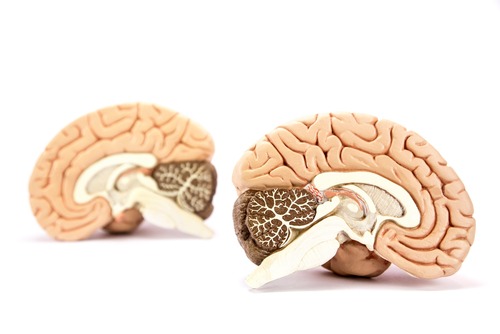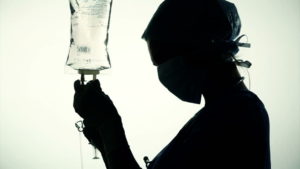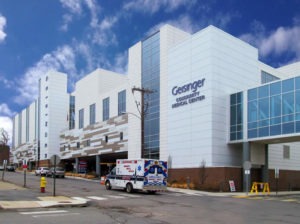 Find out how a medical mistake can lead to a brain stem stroke, which can cause locked-in syndrome and other serious long-term conditions.
Find out how a medical mistake can lead to a brain stem stroke, which can cause locked-in syndrome and other serious long-term conditions.
While a medical error can cause a brain stem stroke, most result from clots or hemorrhages. However, even if a brain stem stroke happens because of an unavoidable medical issue, a treating physician still has a duty of care to make a prompt and accurate diagnosis and to respond with the proper treatment. A doctor who fails to do these things risks making the patient’s condition worse and may be liable for medical malpractice damages.
A severe brain stem stroke can cause a patient to develop locked-in syndrome, a condition characterized by total paralysis of every voluntary muscle in the body except the ones controlling eye movement. A patient with locked-in syndrome often cannot even breathe or swallow on their own, as these actions require muscle movement.
If you or your loved one suffered a brain stem stroke that you believe was caused by a medical error, a lawyer from Newsome | Melton can help you pursue malpractice damages. For a free consultation, call 888-261-5614.
Common Causes of Brain Stem Strokes
A brain stem stroke is a sudden and life-threatening medical event caused by a lack of blood and oxygen to the brain. As its name indicate, it affects the brain stem, a part of the brain just above your spine housing the pons. The pons is an area of the brain stem that connects the medulla oblongata and the thalamus. It is responsible for relaying nerve impulses between the brain and spinal cord.
Several events can cause blood flow to the brain to slow or stop, leading to a stroke. The two most common are clots and hemorrhages. Both conditions can be tricky to identify and diagnose, as they often produce no symptoms until a sudden medical event, such as a stroke, occurs.
However, your doctor should be aware if you possess one or more of the risk factors for developing a stroke, and if you do, he or she should be especially vigilant about noticing early warning signs. The common risk factors are:
- High blood pressure
- Diabetes
- Heart disease
- Atrial fibrillation
- Smoking
If you or your loved one was at risk for stroke, but your doctor did not pick up on the risk factors or warning signs, we may be able to hold them liable for your brain stem stroke in a medical malpractice lawsuit. For a free consultation with the Newsome | Melton legal team, call 888-261-5614.
Brain Stem Strokes and Medical Errors
A less common cause of brain stem strokes is head trauma, which can lead to bleeding in the brain and can potentially trigger a stroke. Head trauma can occur during a medical procedure due to recklessness or carelessness on the part of a doctor or health care provider.
A doctor might also make an error during brain or spinal surgery or may prescribe a medication that touches off a brain stem stroke. A medical malpractice lawyer can investigate the circumstances surrounding the stroke suffered by you or your loved one. If medical negligence played a role, either directly or indirectly, your attorney can help you take action and recover damages.
Brain Stem Strokes and Locked-In Syndrome
Short of death, the most severe outcome of a brain stem stroke is locked-in syndrome. This ailment is quadriplegia and then some. A person who has locked-in syndrome is totally paralyzed except the muscles that control eye movement. They require assistance with every daily task, including the ones most of us perform unconsciously, such as breathing.
Locked-in syndrome does not, however, affect cognitive function, nor does it rob a person of their eyesight or hearing. They can see, hear, and understand everything going on around them. But they have difficulty responding to it or even acknowledging that they are aware of what is happening. Their only method of communication is to move their eyes in different patterns to convey their thoughts.
Treating Locked-In Syndrome
Unfortunately, locked-in syndrome has no cure except in highly rare cases in which a doctor can detect, treat, and reverse the underlying cause within hours of onset. Treatment for locked-in syndrome focuses on adapting to the condition and learning to have a meaningful life despite it.
Communication is the main component. Studies indicate that people with locked-in syndrome who successfully develop a system of communication with loved ones report a much higher quality of life than those who do not.
Failure to Diagnose - News Articles

Minnesota Jury Finds Nurse Negligent for Wrongful Death; Awards Family $20,000,000 Nicole Bermingham gave birth to her first child in August 2013. She was discharged after the successful delivery and was happy to bring her baby boy home. But something was not quite right. She complained of pain in her pelvic region and her back.
Read More
On February 6, 2012, Kristine Coleman felt a sharp pain shoot down her left arm. The sensation lingered and Coleman, then 41, was rushed to the Geisinger Community Medical Center. Coleman told the attending physicians that she was experiencing pain from her left shoulder all the way to her left hand. The medical center staff
Read More